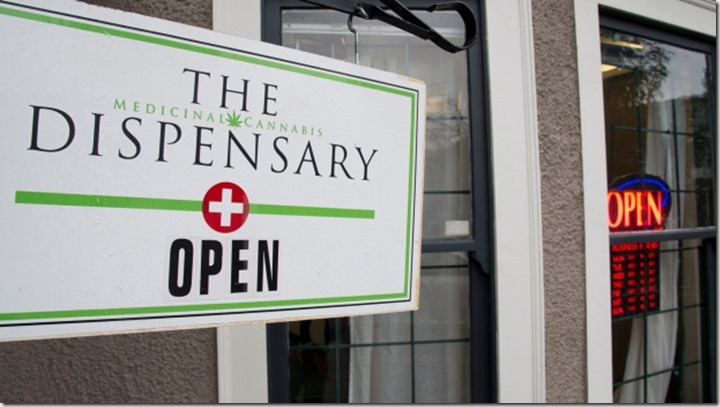When I started the Victoria Canna- bis Buyers’ Club almost 17 years ago, I dreamed about the organization operat- ing as a nonprofit society out of a store. At the time I was 26, living in a van, and eating at soup kitchens. The plan was to break the law, selling cannabis prod- ucts to sick people until I got busted a bunch of times, and either went to jail or changed the laws.
Three years ago, when the bakery for the Cannabis Buyers’ Clubs of Canada was raided and Owen Smith—no rela- tion to me—was charged with traffick- ing THC, we all knew the case had the potential to change the law and dem- onstrate the importance of dispensaries. This spring, when BC Supreme Court Justice Johnson struck down the Mari- juana Medical Access Regulations for violating patients’ rights, we took a big step toward legalizing whole plant can- nabis medicines. However, he decided it was still in the public interest to proceed with a jury trial, making it clear that sell- ing cannabis by means other than the regulations in the MMAR is considered a federal offense.
Soon after the decision was handed down, agents for the Canada Revenue Agency came to the club to start collect- ing taxes. Justice Johnson thought it was also necessary to include in his decision the fact that we were not collecting HST or employee deductions. From the mo- ment they appeared, I was convinced this was a perfect opportunity to further le- gitimize the club, even though the agents stressed that paying taxes did not mean our work suddenly became legal.
Until this spring, there were many reasons why having all of the legal and financial responsibilities fall upon one person made sense. A nonprofit society would have struggled to survive the four police raids of 2002-2003, the massive debts they left behind, and the internal politics that can often bog down non- profit societies managing large sums of money. All along, though, I treated the club like a co-op, assuming that one day the members, staff and growers would be my boss when I officially took over as Executive Director.
Turning the club into a nonprofit so- ciety has presented several challenges. It was not possible to use the name “Can- nabis Buyers’ Clubs of Canada”, because it was too similar to another group. This gave us the chance to change back to the
original name, the Victoria Cannabis Buyers’ Club. This was something I had considered doing anyway, because we no longer have a chapter in Nova Scotia, and we are tired of being told our name is misleading because we do not do mail orders.
Another struggle has been finding the right board members. I have been picky. At first I wanted a board of nine: two members, two staff, two growers, and three Directors-at-Large from outside the club. In the end I settled upon five— two staff, one member, one grower and one director-at-large. For a few reasons, it seems best to keep the initial board a bit smaller as we all adjust to this new reality.
Though I envisioned being the Execu- tive Director of the new society, it appears the best thing is to separate myself from the club financially as much as possible. There are more reasons for this than I have time to explain. First and foremost, I feel totally responsible for not collect- ing HST or employee deductions, and do not feel the organization should have to pay that. It is enough that members now have to pay 12 percent HST, when the medicine is already disproportionately expensive due to prohibition.
Another reason for me to separate my- self financially from the club is that I’m sick and tired of being accused of making a lot of money from the club. We plan upon making the club’s monthly finan- cial statements available for the public so everyone can see where the money is spent. This level of transparency will make it very clear that the only profit re- ally being made at our club is measured by how many people have recovered from trauma, and are now managing their lives better and living longer.
While he has not even worked at the club for two years yet, it was obvious Di- eter MacPherson was the perfect choice to take over from me. He was already acting as the manager in my absence, showing that he had the nerve to deal with the police, the compassion needed to help the members, the patience that having staff demands, the vision required to see through political fog, the organiza- tional skills necessary to keep up with the increased paperwork, and the ambition to constantly improve the organization. He will be both the Founding President of the board of directors of the Victoria Cannabis Buyers’ Club, and the Execu- tive Director of the staff.
Aside from getting new photo ID
membership cards and signing a form for joining the new nonprofit, club mem- bers will not see any difference in services or rules. It was fitting that I was not in the store on the last day I owned it, or the first day it was a nonprofit, indicat- ing how competent the staff are and how easy the transition will be. As the board develops committees and builds a struc- ture for people to get involved, the group will change and grow quickly.
Starting in Nov., the club will form committees that will work on areas that were primarily my responsibility, and are not part of the day-to-day functions of the club. There will be monthly commit- tee meetings focused on advocacy, Health Canada, health care, research, and fund- raising, with a new committee starting each month from Nov. to Mar., 2013. By that time, the board will be overseeing the work of eight committees, the others being finance, membership, and policy.
There will be a concerted effort to doc- ument the proceedings as much as pos- sible, and we will post the committees’ minutes on the online forums. While she will not be secretary for all of the com- mittees, as the secretary of the Board of Directors, Majick Stirling will do a lot of work to make sure those responsible make the minutes public on time. She is also the member representative on the board, giving her a louder voice to speak to the public about medical cannabis is- sues, while giving members another way to bring concerns to the management.
Each of these committees will have a chair and secretary—hopefully people not already serving on the board. It is our intention to find members able to focus on a single committee, using their skills, connections, and interests to help the group accomplish
tasks and discuss strategy. With the group growing faster than ever, and many longtime members looking to get involved, there will be no problem filling each committee with several qualified people.
The first big project the new society faces is the 20-day jury trial of Owen Smith, starting Feb. 5, 2013. While I will put a great deal of time and energy into this trial, there is only so much I can do. In the first stage of the trial, we had many days where there were few people in court supporting Owen, despite our do- ing everything short of closing down the vapor lounge to get members to attend.
We need about 10 more witnesses pre- pared to tell the jury their story about us-
ing the edible and topical cannabis prod- ucts of VCBC. Letters should be sent to the editors of local and national newspa- pers, while radio stations get phone calls from people about how important this medicine is for them. The jury needs to see the club is one of the largest, friendli- est, most down-to-earth organizations in town.
When I testify this time, I will be able to tell the jury I am no longer making money from the club, showing them fi- nancial statements proving the club is paying over $25,000 a month in vari- ous taxes, and acting in full compliance with all applicable laws, aside from the MMAR, which remains unconstitution- al. I will give each jury member a copy of my book, Hempology 101: The History and Uses of Cannabis Sativa, informing them that I make my living from book sales and donations. This time, the crown will not be able to portray the club as flaunt- ing the law by avoiding taxes or account- ability. This time, I will be an author, and the club a fully functioning non-profit.
Meanwhile, there is a challenge against HST/GST being applied to medical cannabis. Though it will take a few years to come to a conclusion, several legal ex- perts feel there is a good chance that the courts will determine medical cannabis should not be subject to HST/GST. If the case wins, we can use our new record- keeping system to determine exactly how much money each of our members de- serves back. At the least, we will not have to charge HST as of Mar.
The downside in all of this is, I am likely going to be forced to declare bank- ruptcy. As I write this, I do not have a final tax bill from the CRA, but it is probably over $200,000. Normally the CRA tries to collect that money within a year, which would mean payments of at least $15,000 per month. Book sales have not gone well enough to pay that, though nothing would please me more than to sell enough books to pay the debt off. Book sales have not been that great since the summer book tour, so I will be happy if I can just feed myself as well as I have the last few years.
But if the biggest concern is my finan- cial future, then I have done my job and it is time to let the club operate on its own. I am a healthy, active man with a future in leading Hempology 101. While it has been a tremendous honour to serve as the founder of VCBC, there could not be a better time for me to let go and watch it take flight.Cannabis Digest • Fall 2012
By Ted Smith



